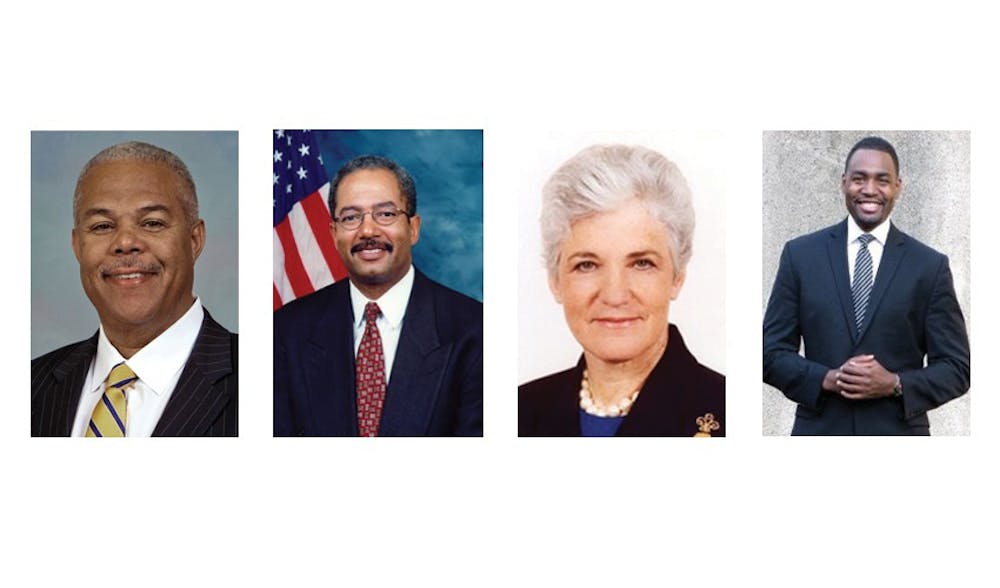The adage goes that “a Republican can never win in Philadelphia.”
Philadelphia hasn’t had a Republican mayor since the early 1950s. Currently, fourteen of the seventeen City Councilmen are Democratic, and most convincingly, as of the 2014 midterm election, 78 percent of registered voters in Philadelphia are Democrats.
The left wing has not always been popular in Philadelphia. The first time Democrats beat Republicans in voter registration numbers occurred in 1957. Up until then, recorded data shows Republican dominance. Even during President Franklin D. Roosevelt’s administration, when national fervor promoted liberal policies, the Republican Party still outflanked the Democrats in Philadelphia.
The trend for a majority Democratic electorate holds for other urban areas as well. Chicago has had Democratic mayors since the 1930s. All fifty of Chicago’s aldermen — legislators similar to ward leaders in Philadelphia — are Democrats.
But some of Philly politicians’ stances on issues break the liberal party norms.
While the front-runner in the 2015 mayoral race, former state Sen. Anthony H. Williams, is a registered Democrat, some of his most prominent supporters come from across the aisle.
During his 2010 run for the Pennsylvania gubernatorial seat, Williams received $3.3 million in donations from a political action committee, Students’ Choice, spearheaded by three conservative businessmen. These same donors have formed a new PAC to contribute $250,000 to his mayoral bid.
Williams’ broad support for charter school expansion is unusual for a Democratic politician, whose base supporters generally include the teachers’ union. Public school teachers, to say the least, have been unsupportive of diverting funds from public schools to charters.
Williams is not the only Democratic politician in Philadelphia whose positions run counter to liberal expectations.
Rep. Chaka Fattah, whose area of representation in the U.S. House of Representatives includes Penn’s campus, received the majority of donations in the 2013-14 election cycle from Comcast.
The cable company has given support to both parties, but generally favors Republicans, whose views against net neutrality align with the company’s own. For his 2014 campaign, Comcast gave Republican Speaker of the House John Boehner, who supports net neutrality, $74,000, while Democrat House Minority Leader Nancy Pelosi only received $7,500 from Comcast.
Meanwhile, Comcast has been the largest donor to Fattah for his past three campaigns. One could only assume their support is linked to Fattah’s extensive record against net neutrality.
Fattah’s majority Democratic district reelected him in 2014 with 87.7 percent of the vote, which raises the issue of whether the title “Democrat” virtually assures success in Philadelphia.
For other candidates, straying from the party platform has resulted in backlash.
Former District Attorney Lynne Abraham, another mayoral candidate, has long opposed the decriminalization of marijuana.
“I’m against it, especially for kids,” Abraham said in a Jan. 5 interview with Philadelphia Magazine. She also criticized the City Council’s bill to decriminalize marijuana, calling it “fake” and “illegal.”
This week, Abraham adjusted her position on decriminalization. Abraham told the Philadelphia Inquirer on Tuesday that she supported the “decriminalization of possessions of small amounts of marijuana for personal use.”
Her supposed “flip-flop” incited ridicule from local pundits and her fellow candidates, but speaks to a larger question on political diversity in Philadelphia.
Some Philadelphia pundits have rebelled against the widespread practice of straight ticket voting, where voters align all of their votes for one particular party. In a Philadelphia Magazine opinion piece from November, Joel Mathis, a self-professed liberal, urged citizens to reject the traditional Democratic candidates. He wrote, “Using our votes to create a sense of competition in our politics might lead to the real thing.”
“The Democratic Party takes urban, city voters for granted, period,” he said.
Despite firm Democratic control of Philadelphia politics, Vice President of College Republicans sophomore Jennifer Knesbach said the group is unlikely to endorse even a conservative Democrat for mayor.
“The mayoral race is one that could be winnable down the road,” Knesbach, a College and Wharton sophomore, wrote in an email.
Still, some Republican candidates seeking higher office in Philadelphia have listened to the old aphorism that “if you can’t beat them, join them.”
Doug Oliver, a former press secretary in Mayor Michael Nutter’s administration, formally announced his candidacy on Saturday. Oliver switched his party affiliation to Republican in 2012 and switched back to Democrat in 2014.
Philadelphia’s politicians, despite a mostly uniform party affiliation, hold markedly different positions. A nearly 80 percent Democratic electorate has elected politicians whose positions oftentimes seem more conservative than liberal. The question for Philadelphia’s political future is whether voters will be able to look beyond party labels at the polls.
Correction: This article has been updated to reflect that Doug Oliver joined the Republican Party in 2012, rather than the Democrat Party in 2010. The DP regrets the error.



